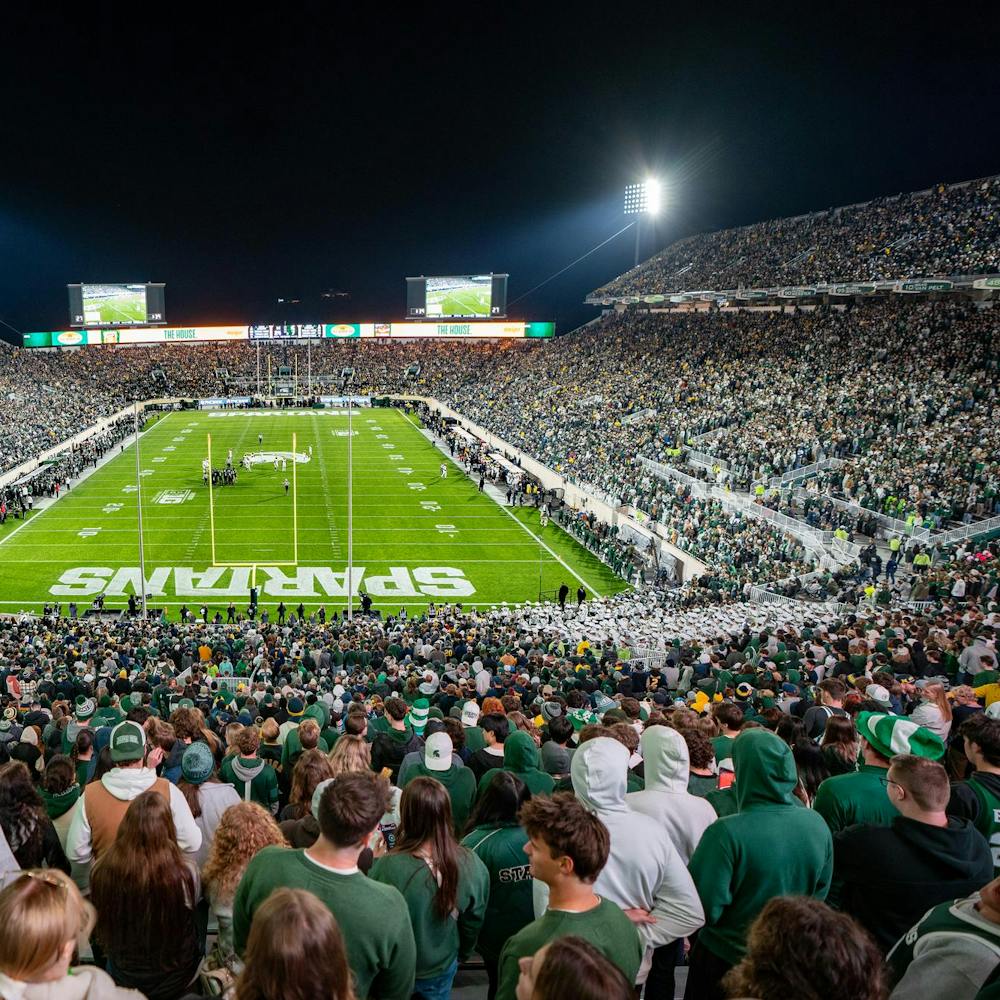As a youngster, I followed politics and news more than most my age. My first Breaking News Alert was a yellow sticky note my mom placed on my bathroom sink when the '92 election results came in.
But as we witnessed last week, there are some events that touch us all. And as graduation nears and I reflect on nearly two decades of schooling, I realize that so much of what we will take from MSU are the experiences beyond books and exams, especially the horrific, national tragedies that have defined our generation.
When I heard about the Virginia Tech University incident, I was immediately spun back to my eighth-grade choir class. Huddled near the doorway, I had never felt so close to my classmates.
Our teacher tried to grasp why students our age would take the lives of their Columbine High School peers. We could see the sheer pain in his face; this was a teacher who loved music and dedicated his life to helping his students do the same.
But the Columbine shootings and other events to follow forever stripped schoolhouses of their innocence. From then on, we learned how to eat lunch, study in the library and walk past the front doors in fear. We learned how to turn off the lights, cower in a corner under desks and "lock down."
For the first time, our naiveté wore off, and it became apparent that as children, we were completely vulnerable to attack.
We live with permanent images of a hollowed-out federal building in Oklahoma City and families desperately searching New York City streets for loved ones who never came home — knowing that actions once incomprehensible are undeniable realities. We've had mothers, fathers, brothers, sisters and friends sent to war in the Middle East not once, but twice. And we now know these things can happen at any time.
What unites us is the unfortunate pain we've shared. In between soccer practices and school dances, we sat down with teachers and parents to discuss events for which there were no words. Dinner table conversations once reserved for report cards and class trips were dominated by homeland and personal security concerns.
This is not to say generations before haven't experienced tragedies of their own. But they were usually external conflicts — in Europe, Vietnam and the Soviet Union.
The gruesomeness displayed during the last 20 years in our own country shows that violence and hate have no conventional wisdom. No amount of education could have prepared our country for what it has witnessed right here at home.
But the lesson isn't about fear. It's about strength and standing up to change the direction of society for those who no longer have that chance.
Many of the Virginia Tech victims were on the verge of graduation. They are faces of our generation. Thirty-two dreams unfulfilled. Thirty-two futures nonexistent. Thirty-two lives cut short. Thirty-two names people will never forget.
As you move on into life outside a classroom, remember the lives lost to famine, disease, violence and other tragedies, not just in the United States, but around the globe.
Take these events that are synonymous with our younger years and make this a better country, a better world.
I can't tell you what I learned in economics class, but I can tell you what I've been taught about loss, pain, compassion, unity and strength from my peers who have seen too much.
Claire Cummings is a member of the State News online design and development team. Reach her at cummin94@msu.edu.


